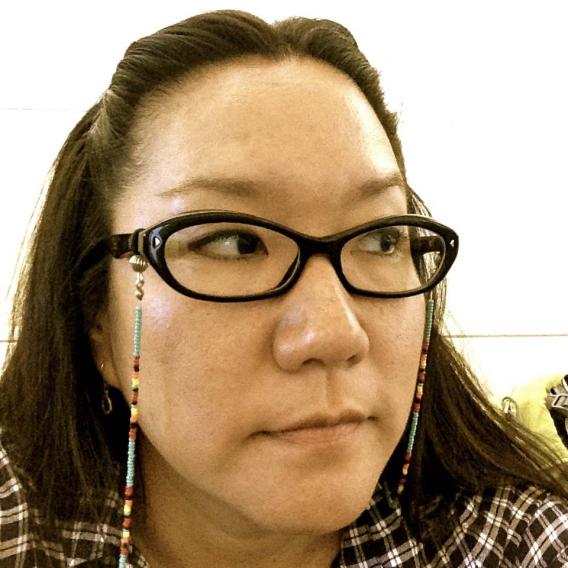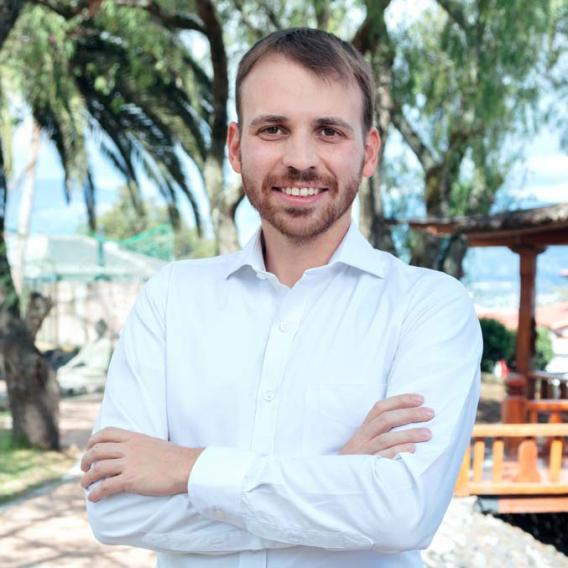Events
Education for the ‘end of the world’: Global environmental research and local education in the Andes Webinar
September 9, 2025 | 12:00 - 1:00 p.m. CT
In 2020, climate education researcher Sharon Stein and colleagues suggested that educators in schools shift from “education for sustainable development” to “education for the end of the world as we know it.” They clarified that “the end of the world” is a vision for an end to extraction and other forms of violence on the planet, and that as educators, we have a vital role in this work. Yet, daily life on earth is made up of complex “entanglements,” as Anna Tsing refers to them–or contradictions and allyships across extraction and convenience, between humans and nature.
Drawing from their community engagement work on global environmental shift , glaciers and water, and local knowledge with six Kichwa communities in Ecuador, Drs. Elizabeth Sumida Huaman and Tiago Bittencourt will share their collective efforts to prepare Andean students and communities for alternative futures amidst severe ecological loss.
This webinar is designed for educators, researchers, parents, and others who are concerned about planetary wellbeing, human health, environment, and research and education with Indigenous, rural and local peoples and in the Western hemisphere.
The University of Minnesota shall provide equal access to and opportunity in its programs, facilities, and employment without regard to race, color, creed, religion, national origin, gender, age, marital status, familial status, disability, public assistance status, membership or activity in a local commission created for the purpose of dealing with discrimination, veteran status, sexual orientation, gender identity, or gender expression. All are welcome.
The University of Minnesota campuses were built on the traditional homelands of the Dakota and Ojibwe, and scores of other Indigenous peoples who have walked on these lands from time immemorial. It is important to acknowledge the peoples on whose land we live, learn, and work as we seek to improve and strengthen our relations with our tribal nations. We also acknowledge that words are not enough. We must ensure that our institution provides support, resources, and programs that increase access to all aspects of higher education for our American Indian students, staff, faculty, and community members.
Photographs taken at the event may be used in University of Minnesota print and online publications, promotions, or shared with the CEHD community.
The University of Minnesota shall provide equal access to and opportunity in its programs, facilities, and employment without regard to race, color, creed, religion, national origin, gender, age, marital status, familial status, disability, public assistance status, membership or activity in a local commission created for the purpose of dealing with discrimination, veteran status, sexual orientation, gender identity, or gender expression. All are welcome.
The University of Minnesota campuses were built on the traditional homelands of the Dakota and Ojibwe, and scores of other Indigenous peoples who have walked on these lands from time immemorial. It is important to acknowledge the peoples on whose land we live, learn, and work as we seek to improve and strengthen our relations with our tribal nations. We also acknowledge that words are not enough. We must ensure that our institution provides support, resources, and programs that increase access to all aspects of higher education for our American Indian students, staff, faculty, and community members.
Presenters

Elizabeth Sumida Huaman (Wanka/Quechua)
Elizabeth Sumida Huaman (Wanka/Quechua) is Professor and Chair of the Department of American Indian Studies in the College of Liberal Arts and Professor in the College of Education and Human Development at the University of Minnesota, Twin Cities. She studies the relationship between Indigenous lands, cultural practices, and in and out-of-school learning with Indigenous communities and Tribal institutions in the Americas. Centering Indigenous knowledge systems, her work examines several themes—interfaces between modernity, development, and Indigenous places; Indigenous community-based educational design and generative environmental pedagogies; and Indigenous and comparative frameworks and enactments of decolonial rights. Her most recent projects include studies of 1) Indigenous land stewardship and climate change impacts in Peru and Ecuador; 2) Andean earth and human rights and reciprocities in education; 3) American Indian scientists, Tribal Colleges and Universities, and STEM learning; 4) small Indigenous schools across the Americas; and 5) labor, violence, nature, and life aspirations among Quechua women.

Tiago Bittencourt
Tiago Bittencourt is a Professor in the Department of Education at Universidad San Francisco de Quito (Ecuador), where he also serves as the Founding Director of the Master’s in Education program. He holds a Ph.D. in Organizational Leadership, Policy, and Development with a specialization in Comparative and International Development Education from the University of Minnesota. His research explores the cultural foundations of inequality, particularly how race and class are made legible and governable in educational spaces. His recent work engages with questions of epistemic justice, decolonial critiques of grading, and the emotional and ideological impacts of English language education in postcolonial contexts. He is also part of a collaborative, science and social sciences interdisciplinary study with Kichwa communities in the Ecuadorian Andes, focusing on Indigenous education and climate change. His work has been published in journals such as Anthropology & Education Quarterly, Compare, Globalisation, Societies and Education and Discourse.